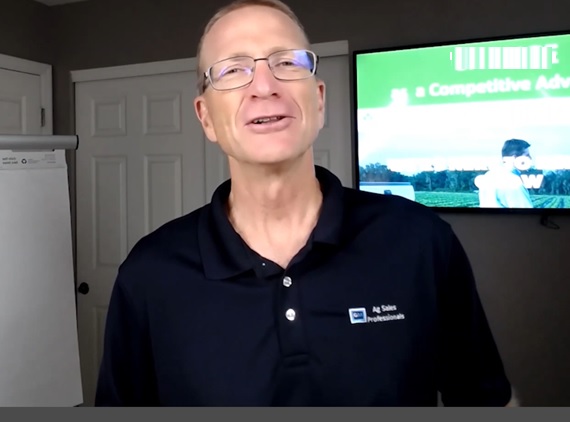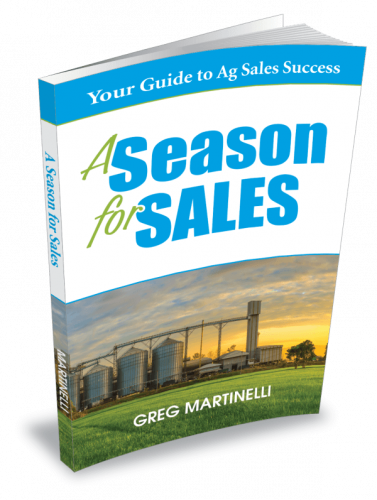Part 2: Digging into two over-used sales phrases you should stop believing now!
Please read through this entire article before reacting to the title. While it may sound contrary to everything sales experts have told you, I want to caution you that… it kind of is. The purpose of this article is to help salespeople make sense of an old sales adage.
Last time, we covered the old sales adage, “We don’t take No for an answer”. Podcast version
Today, I’m taking aim at another common adage that is very difficult for salespeople to understand, “It’s never about price”. If you have been selling for a day and a half, someone or some social media post has told you that customers don’t buy on price. They buy on value. The message is that if your price is higher than the competition, then you should sell them on value. You should tell them how great your product is and then they will pay more for it. Above all, quit selling on price!
Sales experts, gurus, and social media sensations espouse these concepts so often that we begin to believe them. I’m sure that some of these experts actually sold by these words of wisdom. However, most are just reposting or repeating it in order to sound wise or get likes, and shares. Well, more power to them if that’s working for them. I really don’t blame them. They have heard this adage so often that they may blindly believe it as well. My problem is that it’s unoriginal and it’s the easy way out of actually creating content. More importantly, it’s often wrong-ish.
Then, our well-meaning sales sages will tell you about a research study that found 86% of the time, customers don’t buy on price. While I’m sure the research is sound, there is no way it covers all types of sales in all types of product lines. Let me just throw a few pairs of products in agribusiness at you: Fertilizer and tractors, diesel and crop insurance, seed and ag lending, barn builder and agronomist.
Think about these different purchases by farmers. Are they all based on the highest value, the top of the line, premium product? Or, are some of them based on price? The variation in these purchases is as wide as the different companies that sell them. The struggle I have with the phrase, “It’s not about price” is that in general, it is mostly correct. However, in the nitty-gritty details of a customer’s purchase, it is absolutely wrong.
Before going further, let’s review some points:
- Price or money is a value factor. The three components of value are money, time, and emotion. So, price is part of what you offer. The product you sell and the price you charge are a big part of their ROI (Return on Investment). Your price is the “I”. That’s half the equation, which means price is important. If not, we’d all be living in $4 million homes, driving Lamborghinis, and flying in private jets to our vacations. Ridiculous? Can’t afford those things? The cost or debt wouldn’t return the satisfaction of owning those things? For most of us, of course not. So, then stop telling the world it’s not about price.
- An apples to apples comparison is important…but it’s almost never apples to apples. I train on this very subject when dealing with price objections. Customers often don’t do an apples to apples comparison. They leave off freight, discounts, extra charges, other products that need to be bought, and actual feature differences. As hard-working salespeople, we have to reinforce this continuously with customers. The struggle is that our products might be the exact same products as our competitors, but other factors prevent it from being an exact comparison. Aspects like: your location to the customer, speed of supply/resupply, consulting service provided with our products, financing programs, and maintenance service on your products. Or maybe time and emotional values are not comparable: your experience versus your competitor, trustworthiness of you, your location and your parent company versus your competition, loyalty based on previous support.
What to do if you are in sales or leading salespeople?
- Realize that both statements are true if you add the qualifier “to a point”
- “It’s not about price, to a point”
- “It’s always about the price, to a point”
As professional salespeople, it’s our job to find that point. That’s the job! Is that feature on your tractor that you love to talk about worth $10,000 on a $250,000 purchase price? Is your expertise as a nutritionist or agronomist worth $10/ton of feed or fertilizer? The answer to that question changes with every farm, farmer, and salesperson.
Our job is to understand those answers through good discovery questions.
- How does this customer value our benefits versus our competition? We deliver faster, but our drivers don’t know each farm like our competition’s drivers. Their drivers know where the products go, unload without the farmer being there, and will actually notify the farmer if they see something wrong. How much is that worth to customers A, B, or C?
- How big of a problem are you solving with your solutions? By how big, I mean what is the impact on this customer in dollars, time, or emotion? Are you solving a $10 problem with your $100 solution or vice versa? As salespeople, we need to look at selling as solving customer problems. We go around to customers and help them reduce pain or increase results. So, customers definitely want us to be successful at this endeavor as long as the solution costs less than the problem.
2. If you are a salesperson and feel the need to complain to your manager about prices, please do your homework first. Dig into your competitor’s pricing like you are doing an IRS tax audit. Turn over every stone and do the best comparison you can possibly and legally do. Then do good discovery with your customers as mentioned. Most importantly, do all of this before you call your sales manager to ask for a discounted selling price.
3. If you are a sales manager or marketing manager, please understand that the features and benefits of your company and products aren’t always valued by customers as much as you think they should be. If you feel the need to throw a blanket statement like, “It’s never about price.” Or “You need to sell the value” don’t. If you haven’t ground-proofed your pricing with your targeted customers, then please don’t make these bold statements. They sound good at the 10,000-foot level but prove difficult to convey when face-to-face with a customer.
4. One last consideration. If your customer does not value those features and benefits you offer, should you be offering them? If your answer to a customer’s price objection is:
- I walk all of your fields once a month in the growing season
- I provide complete agronomy advice on every acre
- I walk your cows once a month and adjust their diet accordingly
- We have a 24-hour service line and can get a technician on-site for same-day repairs
Great replies. However, if your customer does not value these things, can you not offer them and reduce your price? Or, can you continue to offer them, reduce your price, and be satisfied with the reduced profitability that would cause?
This is a great topic and one that will most likely never go away. We could certainly get deeper and deeper into the discussion of value. As long as there is competition, we will continuously be in a cat-and-mouse game of price discovery. I love to discuss it, train on it, help salespeople manage their territories through it, and help sales leaders manage their salespeople through it. Reach out to me if this is something you would like help with.
Good luck in your ongoing battle to establish as much value in what you offer to your customers!
Podcast: Play in new window | Download


